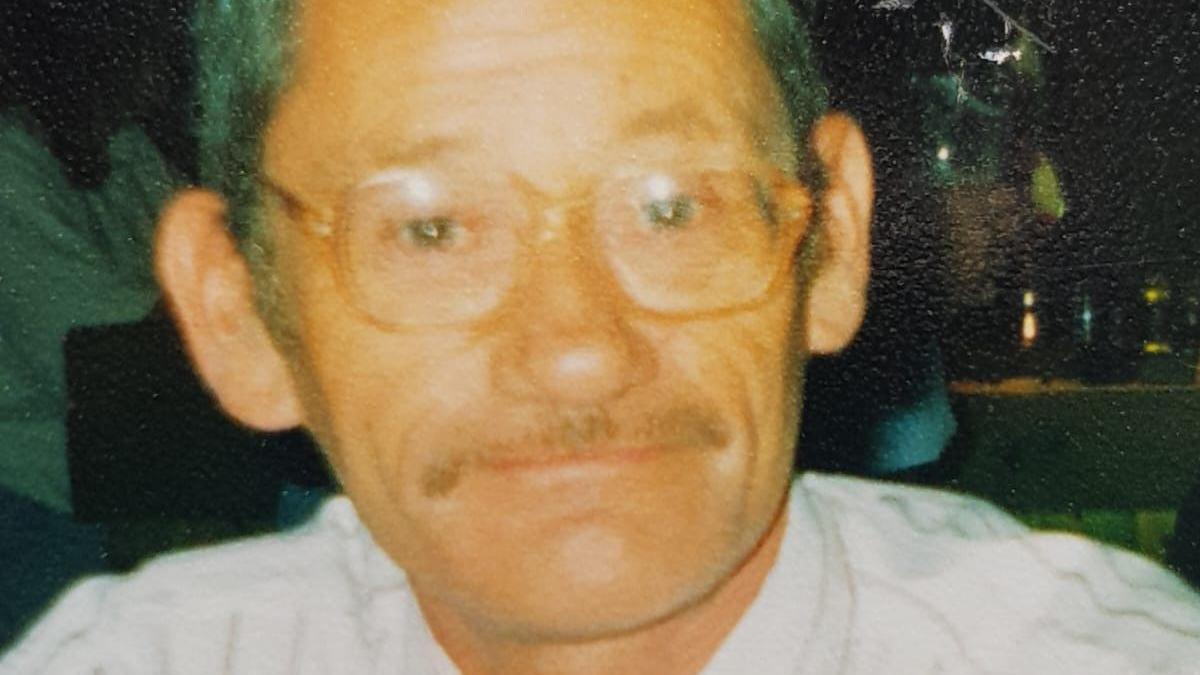Blood scandal family hails 'justice for dad'
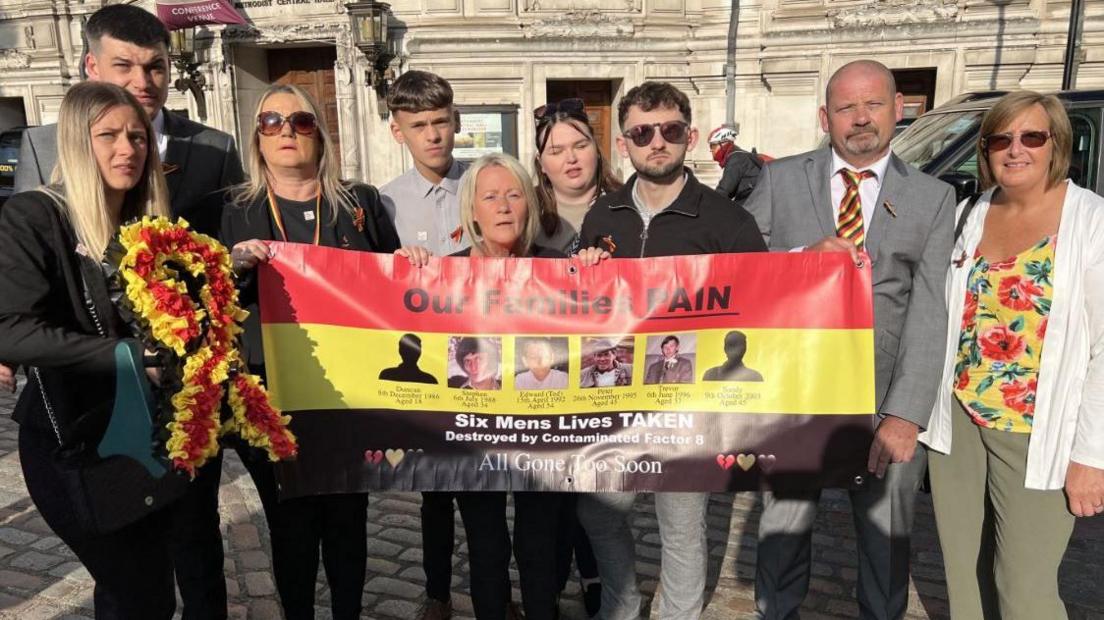
Eileen Burkert (above centre) said it was "shameful" people had to go to "extremes to find out the truth"
- Published
Yorkshire families affected by the infected blood scandal have said justice has finally been done, after an inquiry identified a catalogue of failings by the NHS and successive governments.
Ted Burkert, 54, from Bradford, died in 1992 shortly after suffering a brain bleed, while Richard Warwick, 58, of Malton in North Yorkshire, was infected with hepatitis B and HIV as a child.
The inquiry's final report said patients were knowingly exposed to "unacceptable risks".
Eileen Burkert said she knew her father's death had not been an accident, adding: "The failings are written in black and white. It's justice for me."
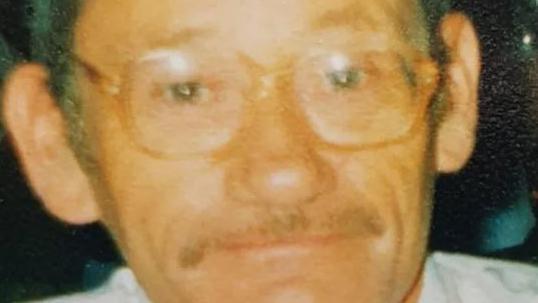
Ted Burkert was infected with HIV and hepatitis C
Ms Burkert said: "I came here for some justice and for somebody to say that they had done wrong."
She said all she had read in the report so far was "failings, failings, failings".
More than 30,000 people were infected with HIV and hepatitis C from 1970 to 1991 by contaminated products - about 3,000 have since died.
A five-year investigation into the scandal has accused doctors, governments and the NHS of trying to cover up what happened
Sir Brian Langstaff, the report's author, said people who had put faith in doctors and the government had been "betrayed".
Mr Burkert, a single father of five, was born with the clotting disorder haemophilia A and was given a new treatment called Factor 8, made from pooled blood plasma.
In the 1970s, the UK was struggling to meet demand for the new treatment, so stocks were imported from the US where high-risk groups, like prisoners, were among the donors.
The Infected Blood Inquiry estimates that 1,250 people with bleeding disorders in the UK developed both HIV and hepatitis C as a result, including 380 children.
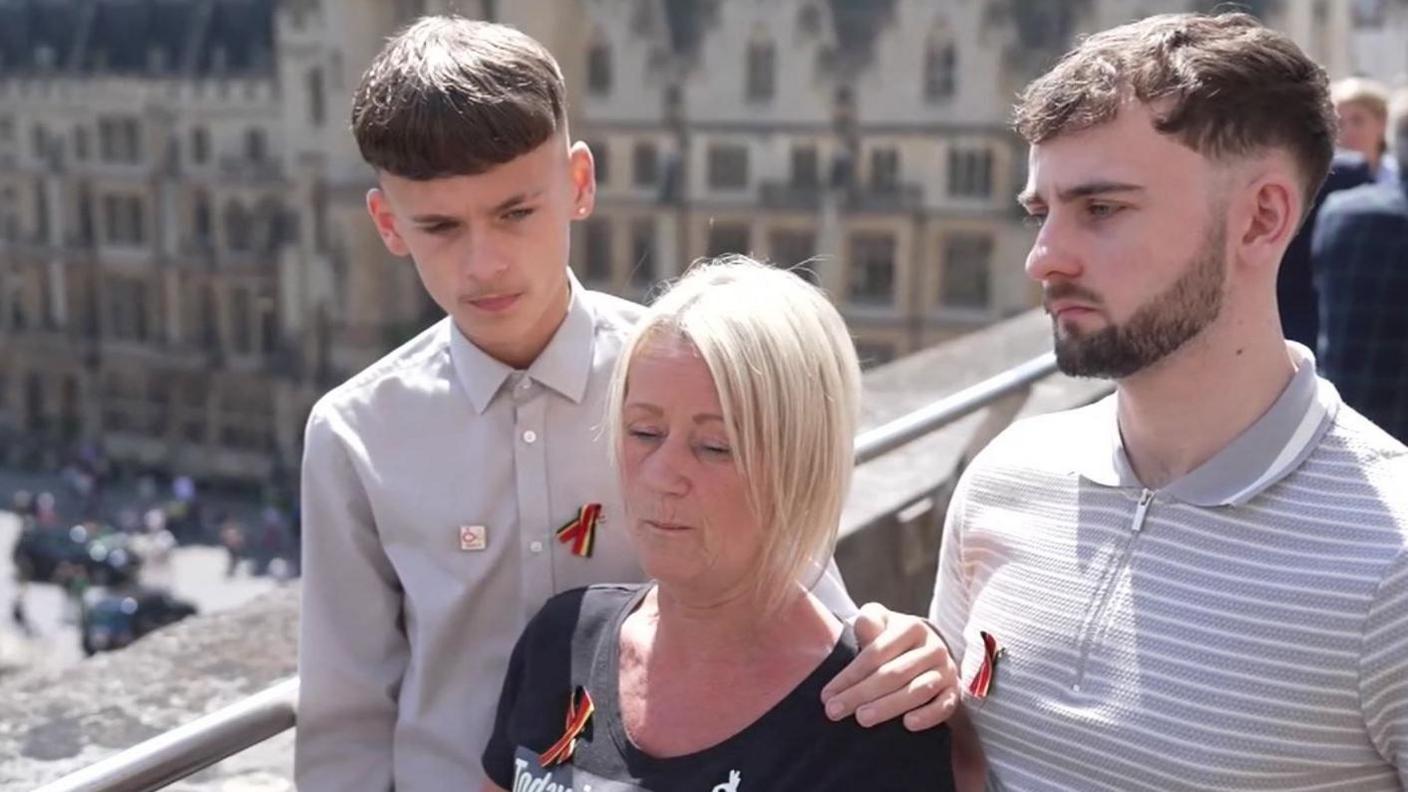
Eileen Burkert said she was "happy with what I've read so far" and there was "justice there for my dad"
Mr Burkert never told his family he had been infected with HIV to protect them.
His children only discovered his status as he was dying in hospital.
Years later they found medical records stating he also had Aids and hepatitis C at the time of his death.
Ms Burkert, from Halifax, said: "They covered it up over the years.
"It's just constantly been brushed under the carpet, pushed to one side, ignored - this today is massive for us."
Mr Warwick received blood products when he attended Treloar's boarding school in Hampshire between 1976 and 1982.
He was infected with hepatitis B at the age of 10 and contracted HIV in 1978, but was not told until 1984.
Responding to the findings of the inquiry, he said: "I feel we have been totally vindicated in what we have said over the last 20 or 30 years, when we said we had suspicions of something being not quite right."
He said: "Eighty boys at my school were infected and later went on to die in their 20s. That's just unconscionable."
Mr Warwick said the report into the scandal was "truly damning".
"Its taken nearly half a century to get to this stage, now it's up to the government to do the right thing and financially compensate victims," he added.
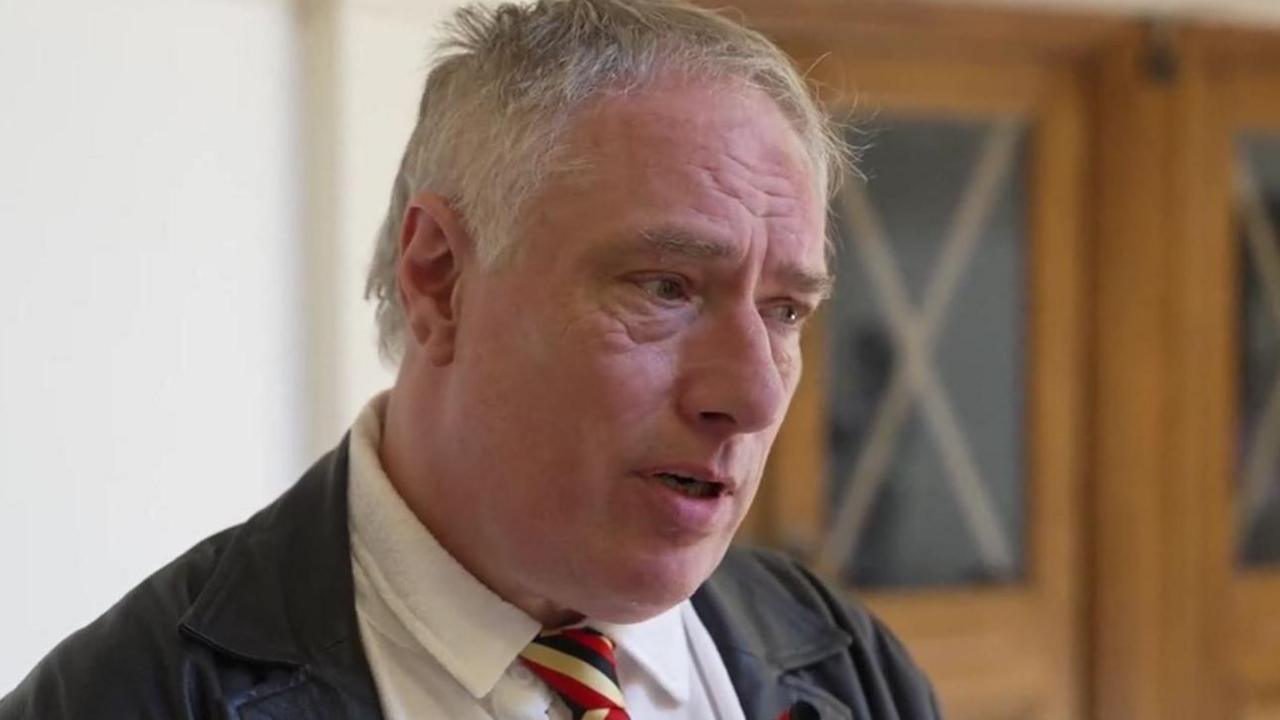
Richard Warwick was given blood products aged 11 when he attended Treloar's school in Hampshire
Ms Burkert said she was happy with what she had read in the report so far.
"Yes there's justice there for my dad. I can throw my hands in the air and say today is for my dad," she said.
"They were just people that had an illness and who just wanted to live their lives and all their lives were cut short - very short.
"It's all a bit much today. But eventually I should be able to put this to bed and let my dad rest."
Follow BBC Yorkshire on Facebook, external, X (formerly Twitter), external and Instagram, external. Send your story ideas to yorkslincs.news@bbc.co.uk.
Related topics
- Published17 May 2024
